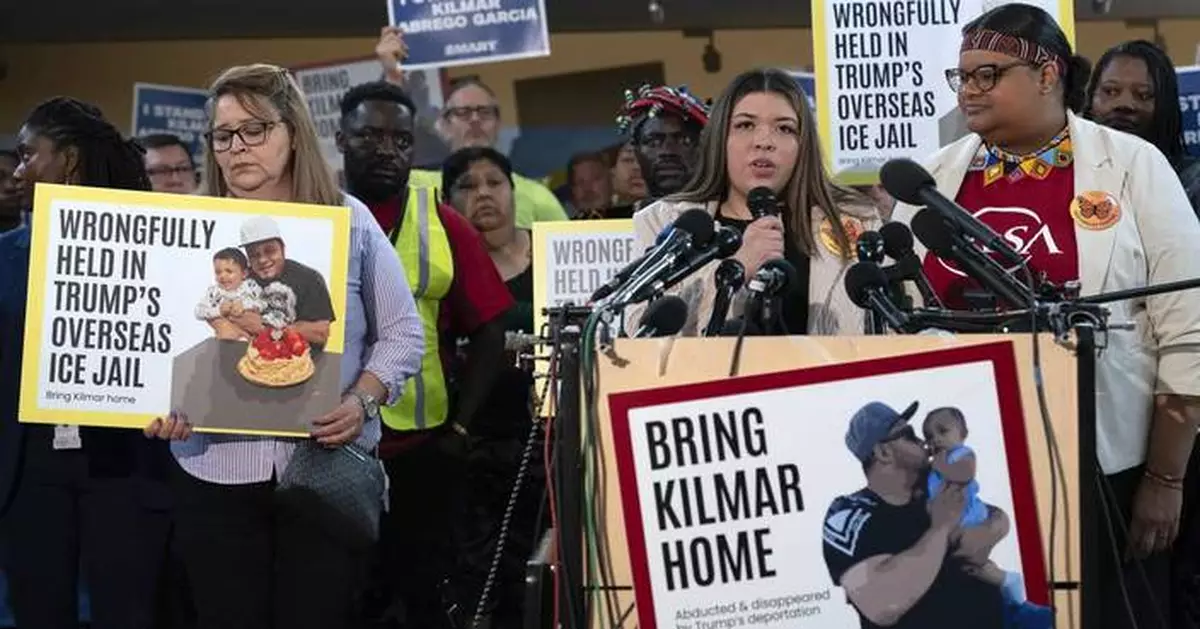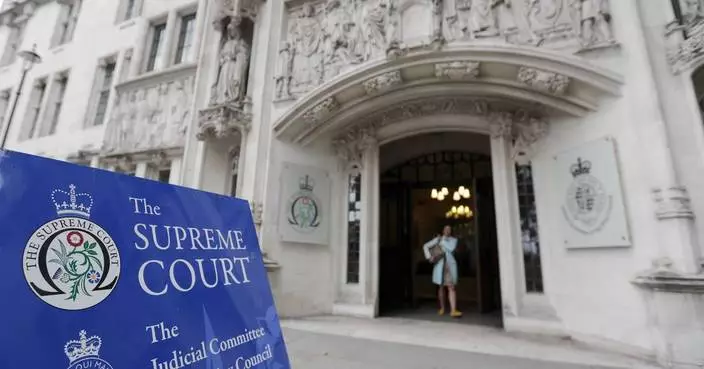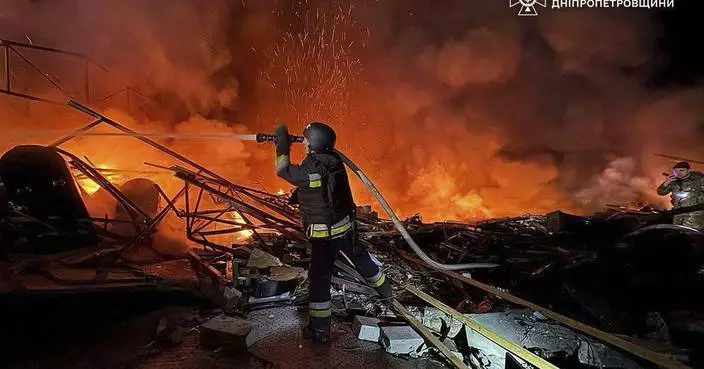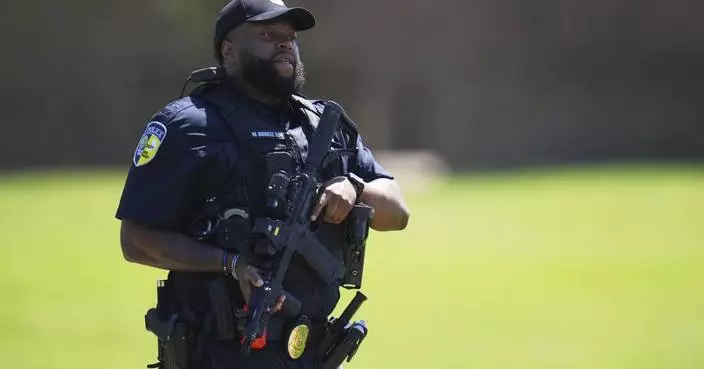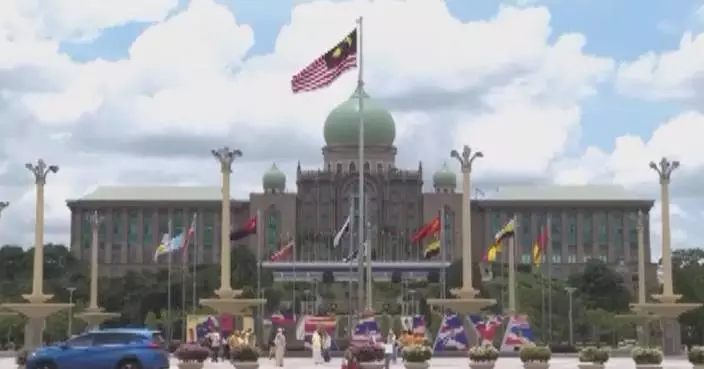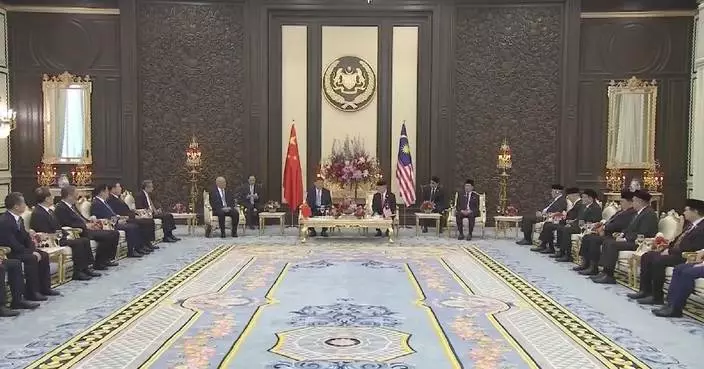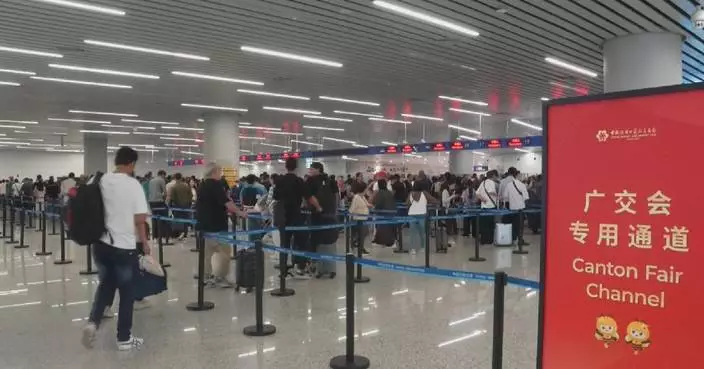The Trump administration is doubling down on its decision not to tell a federal court whether it has any plans to repatriate a Maryland man who was mistakenly deported last month and remains confined in a notorious prison in El Salvador, despite a Supreme Court ruling and lower court order that the man should be returned to the United States. The U.S. district court judge handling the case of Kilmar Abrego Garcia now is weighing whether to grant a request from the man's legal team to compel the government to explain why it should not be held in contempt. Any move toward a contempt finding would represent an extraordinary turn in the Trump administration's assertion of presidential authority, both generally and specifically over immigration policy.
The government's latest daily status update, filed Sunday as required by Judge Paula Xinis, states essentially that the Trump administration has nothing to add beyond its Saturday statement that, for the first time, confirmed that Abrego Garcia, 29, was alive and remained in an El Salvador prison under the control of that country's government. That means for the second consecutive day, the administration has not addressed Xinis' demands that the administration detail what steps it was taking to return Abrego Garcia to the United States.
The U.S. Supreme Court ruled last Thursday that the Trump administration must bring him back. Xinis followed that with an order Friday requiring the administration to disclose Abrego Garcia’s “current physical location and custodial status” and “what steps, if any, Defendants have taken (and) will take, and when, to facilitate” his return.
The Trump administration has asserted that Abrego Garcia, who lived in the U.S. for about 14 years before being deported, is a member of the MS-13 gang. Abrego Garcia has disputed that claim, and he has never been charged with any crime related to such activity. The Trump administration has called his deportation a mistake but also has argued, essentially, that its conclusion about Abrego Garcia's affiliation makes him ineligible for protection from the courts.
Abrego Garcia's location was first confirmed to the court by Michael G. Kozak, who identified himself in the Saturday filing as a “Senior Bureau Official” in the State Department's Bureau of Western Hemisphere Affairs. Sunday's status update was signed by Evan C. Katz, who was identified in the filing as assistant director of Enforcement and Removal Operations for the U.S. Immigration and Customs Enforcement agency within the Department of Homeland Security.
Separately, Abrego Garcia's lawyers have asked Xinis to issue an order compelling the government to explain to the court why it should not be held in contempt for failing to comply fully with previous orders. As of early Sunday evening, Xinis had not filed such an order.
Abrego Garcia's lawyers also have asked Xinis to order the government, among other things, to produce documents and contracts that detail the U.S. agreement with El Salvador to house people deported from the U.S. or, in absence of such records, to require that government officials testify in court about the arrangement.
Xinis expressed frustration Friday during a hearing in her Maryland courtroom when a U.S. government attorney struggled to provide any information about Abrego Garcia’s whereabouts.
“Where is he and under whose authority?” the judge asked during the hearing. “I’m not asking for state secrets. All I know is that he’s not here. The government was prohibited from sending him to El Salvador, and now I’m asking a very simple question: Where is he?”
The judge repeatedly asked a government attorney about what has been done to return Abrego Garcia, asking pointedly: “Have they done anything?”
Drew Ensign, a deputy assistant attorney general, told Xinis that he had no personal knowledge about any actions or plans to return Abrego Garcia. But he told the judge the government was “actively considering what could be done” and said that Abrego Garcia’s case involved three Cabinet agencies and significant coordination.
Kozak's statement a day later stated: “It is my understanding based on official reporting from our Embassy in San Salvador that Abrego Garcia is currently being held in the Terrorism Confinement Center in El Salvador. He is alive and secure in that facility. He is detained pursuant to the sovereign, domestic authority of El Salvador.”
The Justice Department has not responded to an Associated Press request for comment.
During his time in the U.S., Abrego Garcia worked construction, got married and was raising three children with disabilities, according to court records.
A U.S. immigration judge initially shielded Abrego Garcia from deportation to El Salvador because he likely faced persecution there by local gangs that terrorized his family. The Trump administration deported him there last month anyway, before describing the mistake as “an administrative error” but standing by its claims that he was in MS-13.
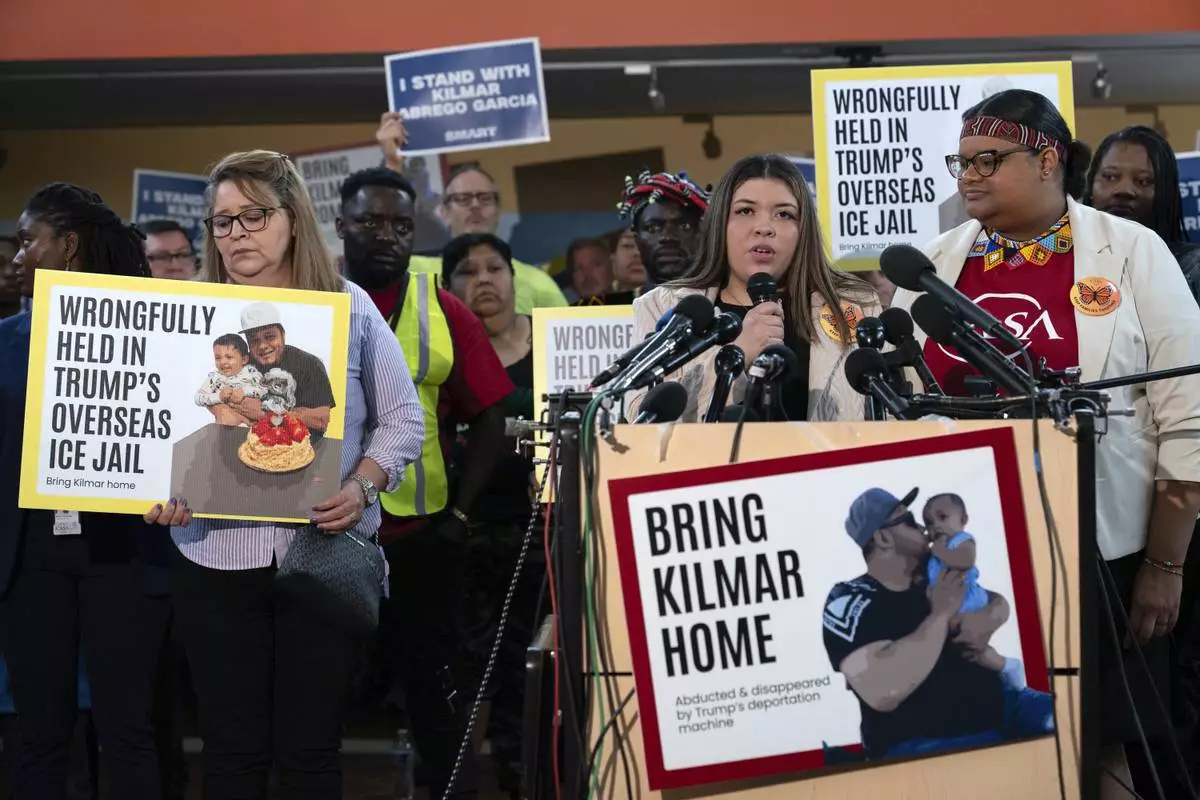
FILE - Jennifer Vasquez Sura, the wife of Kilmar Abrego Garcia of Maryland, who was mistakenly deported to El Salvador, speaks during a news conference at CASA's Multicultural Center in Hyattsville, Md., April 4, 2025. (AP Photo/Jose Luis Magana, file)
JERUSALEM (AP) — Israel’s defense minister said Wednesday that troops will remain in so-called security zones in the Gaza Strip, Lebanon and Syria indefinitely, remarks that could further complicate talks with Hamas over a ceasefire and hostage release.
Israeli strikes across Gaza meanwhile killed another 22 people, according to local health officials, including a girl who was not yet a year old. The girl’s mother, who was wounded in the strike, embraced her daughter, still wearing a bloodied blue and white dress, before she was taken for burial.
Israeli forces have taken over more than half of Gaza in a renewed campaign to pressure Hamas to release hostages after Israel ended their ceasefire last month. Israel has also refused to withdraw from some areas in Lebanon following a ceasefire with the Hezbollah militant group last year, and it seized a buffer zone in southern Syria after rebels overthrew President Bashar Assad in December.
“Unlike in the past, the (Israeli military) is not evacuating areas that have been cleared and seized,” Defense Minister Israel Katz said in a statement. The military “will remain in the security zones as a buffer between the enemy and (Israeli) communities in any temporary or permanent situation in Gaza — as in Lebanon and Syria.”
The Palestinians and both neighboring countries view the presence of Israeli troops as military occupation in violation of international law. Hamas has said it will not release dozens of remaining hostages without a complete Israeli withdrawal from Gaza and a lasting ceasefire.
“They promised that the hostages come first. In practice, Israel is choosing to seize territory before the hostages," the main organization representing families of the hostages said in a statement.
“There is one solution that is desirable and feasible, and that is the release of all the hostages at once as part of an agreement, even at the cost of ending the war," it said.
Israel says it must maintain control of what it refers to as security zones to prevent a repeat of Hamas' Oct. 7, 2023, attack, in which thousands of militants stormed into southern Israel from Gaza, killing some 1,200 people, mostly civilians, and abducting 251.
Israel’s offensive has killed over 51,000 Palestinians, according to Gaza’s Health Ministry, which does not say how many were civilians or combatants but says women and children make up more than half of the dead. Israel says it has killed some 20,000 militants, without providing evidence.
Ahlam Seiam’s family had planned to celebrate her first birthday later this month. Then the Israeli strike hit the building where they had pitched a tent on the roof.
Her grandfather, Nashat, said Wednesday that the family was awakened by a loud blast overnight. When he raced up to the roof, he found his son, Mohammed, sobbing.
“I found her like this,” he said as he held the body of his granddaughter.
Associated Press footage showed the mother, wrapped in bandages after being wounded in the strike, cradling her daughter one last time in the hospital bed.
Israel says it only targets militants and blames Hamas for civilian deaths because its fighters operate in residential areas. The grandfather said there were no militants in the area of the strike. There was no immediate comment from the Israeli military.
The family had fled to Khan Younis from the southern city of Rafah after Israel renewed its offensive last month. “Wherever you go, death will catch up with you. There is no escape,” the grandfather said.
Nermin Zughrub, Ahlam’s aunt, scrolled through photos of the girl on her phone.
“If the world doesn’t wake up today, when will it?” she said. “Every day — massacres. Every day — children.”
Israel's bombardment and ground operations have left vast areas of the territory uninhabitable and have displaced around 90% of the population of roughly 2 million Palestinians. Many have been displaced multiple times, and hundreds of thousands are crammed into squalid tent camps with dwindling food after Israel sealed off the territory from all imports more than a month ago.
Israeli Prime Minister Benjamin Netanyahu has vowed to annihilate Hamas and return the 59 hostages still in Gaza — 24 of whom are believed to be alive. He has said that Israel will then implement U.S. President Donald Trump's proposal for the resettlement of much of Gaza's population in other countries through what Netanyahu refers to as “voluntary emigration.”
Palestinians and Arab countries have universally rejected Trump’s proposal, which human rights experts say would likely violate international law. Palestinians in Gaza say they don’t want to leave, and fear another mass expulsion like the one that occurred during the war surrounding Israel’s creation in 1948.
The Trump administration, which took credit for helping to broker the ceasefire, has expressed full support for Israel's decision to end it and to cut off all humanitarian aid. Trump's Mideast envoy, Steve Witkoff, has been trying to broker a new ceasefire more favorable to Israel, but those efforts appear to have made little progress.
Netanyahu helms the most nationalist and religious government in Israel's history, and his coalition partners have called for the reestablishment of Jewish settlements in Gaza.
Israel withdrew its forces from Gaza and dismantled its settlements there in 2005, but it maintained control of most of Gaza's land border, coastline and airspace, and joined Egypt in imposing a blockade after Hamas seized power in 2007.
Israel seized Gaza, east Jerusalem and the West Bank — territories the Palestinians want for a future state — in the 1967 Mideast war. It also captured the Golan Heights from Syria in that conflict and annexed it in a move not recognized by any country except for the United States.
Shurafa reported from Deir al-Balah, Gaza Strip and Magdy from Cairo.
Follow AP’s war coverage at https://apnews.com/hub/israel-hamas-war
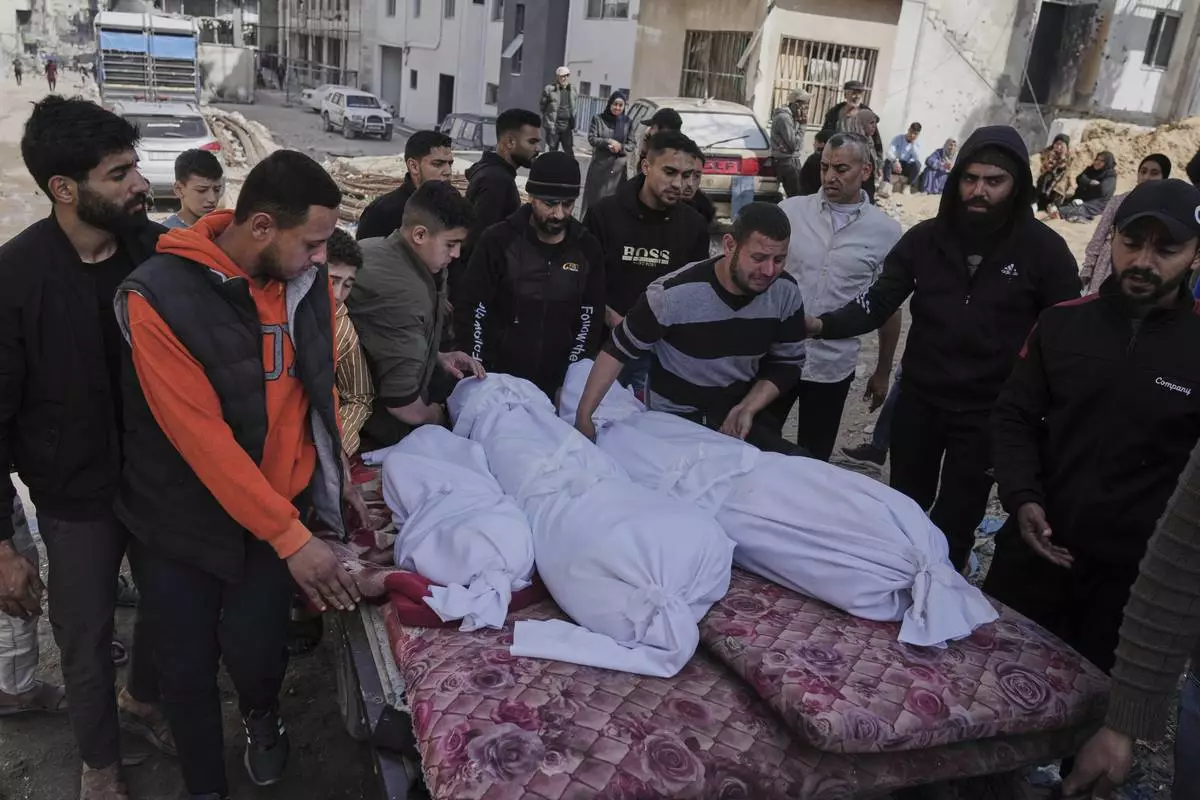
Palestinians accompany the bodies of their relatives killed in an Israeli airstrike, loaded onto a carte in preparation for burial, at Shifa Hospital in Gaza City, Wednesday, April 16, 2025. (AP Photo/Jehad Alshrafi)
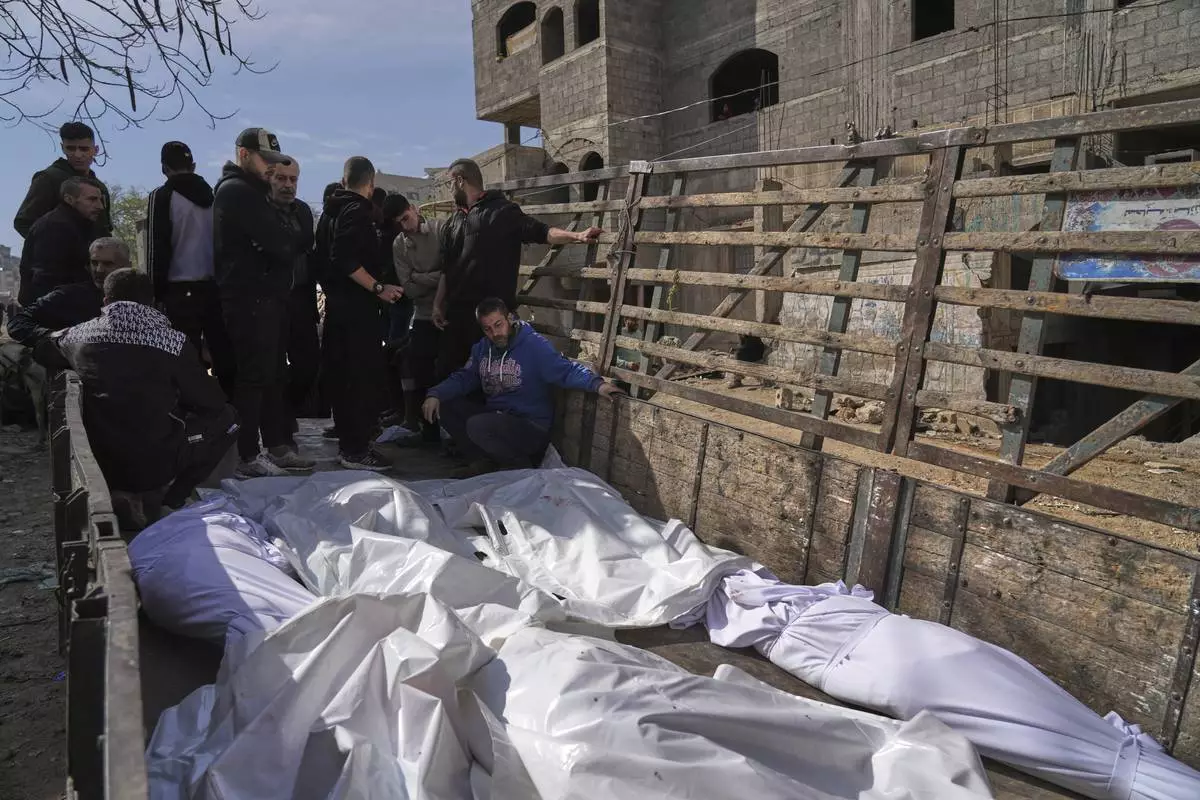
Palestinians accompany the bodies of their relatives killed in an Israeli airstrike, loaded onto a truck in preparation for burial, at Shifa Hospital in Gaza City, Wednesday, April 16, 2025. (AP Photo/Jehad Alshrafi)
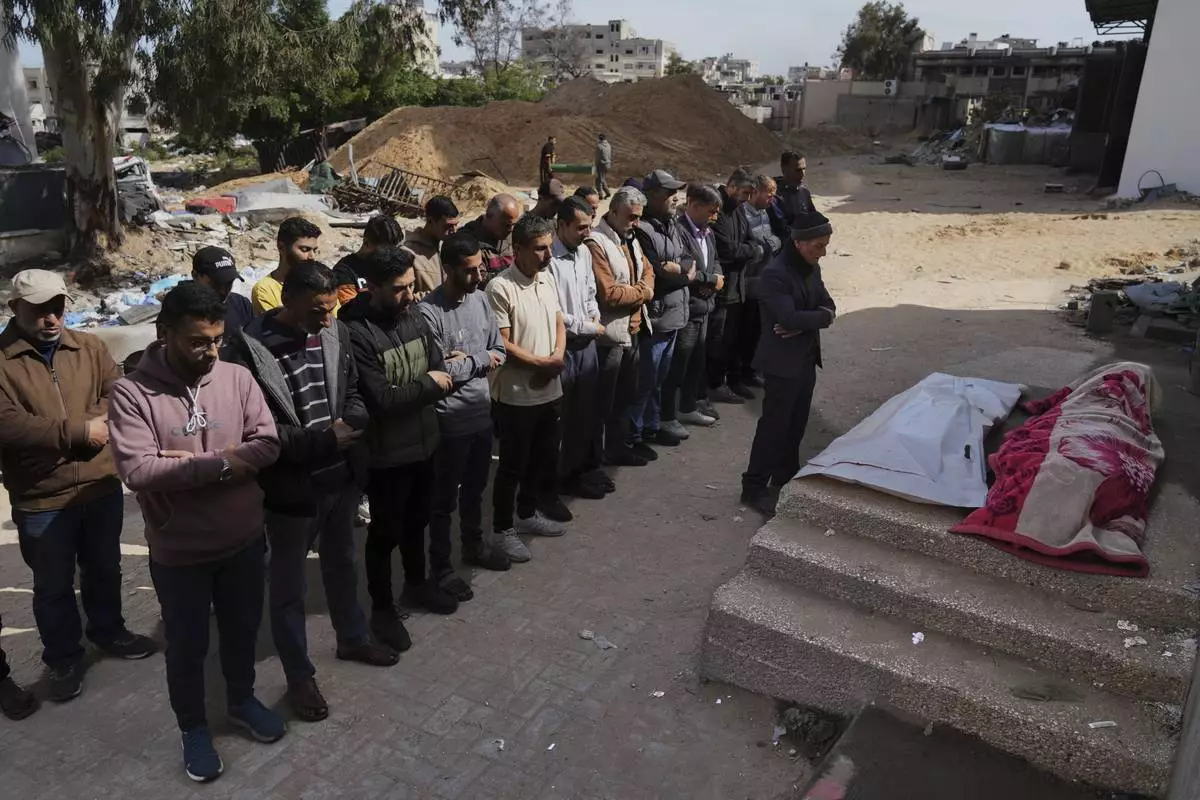
Mourners pray over the bodies of Palestinians killed in an Israeli airstrike during their funeral at Shifa Hospital in Gaza City, Wednesday, April 16, 2025. (AP Photo/Jehad Alshrafi)
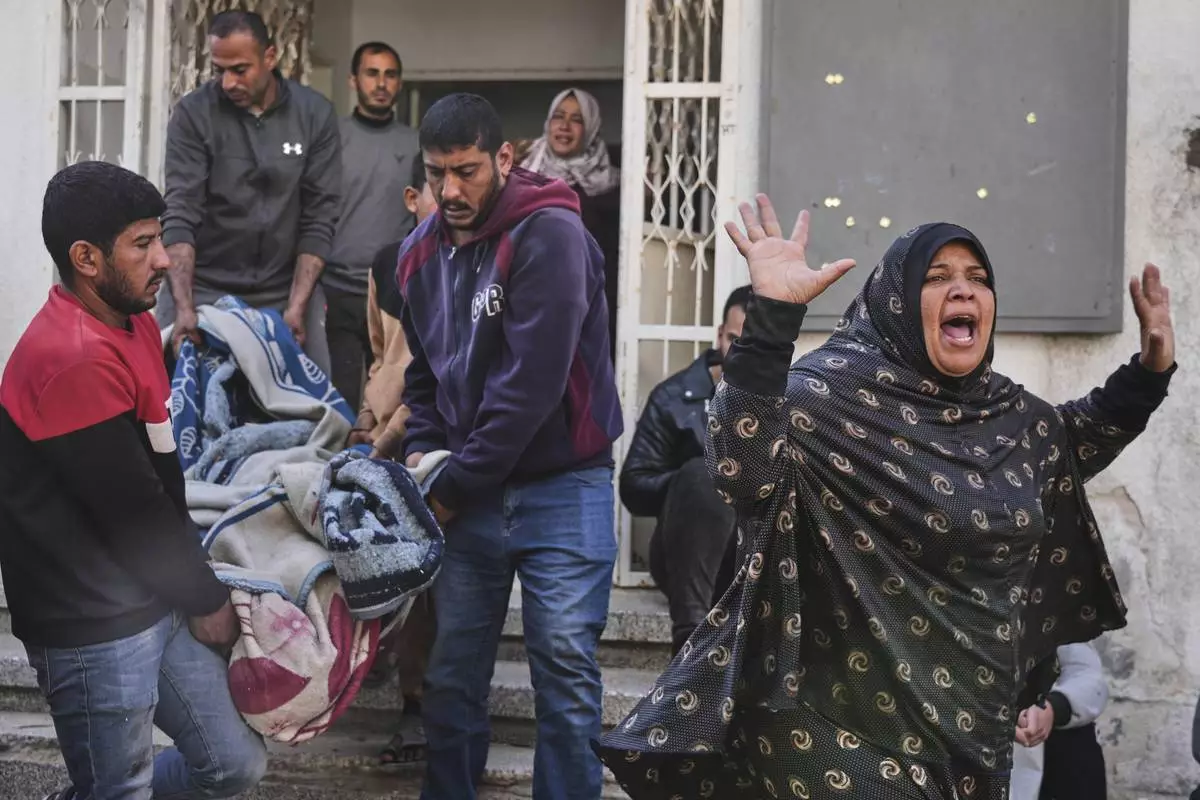
A Palestinian woman reacts as others carry the body of their relative, killed in an Israeli airstrike, in preparation for burial at Shifa Hospital in Gaza City, Wednesday, April 16, 2025. (AP Photo/Jehad Alshrafi)



